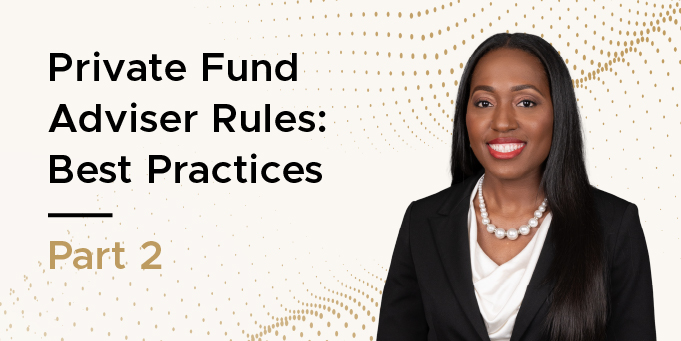
Biden Administration Proposal Update for the Financial Services Industry
- Published
- Aug 10, 2021
- By
- Marc Stahl
- Topics
- Share
The Biden Administration has proposed several tax law changes including the following:
- Increase the highest individual tax rate to 39.6%;
- Tax carried interests as ordinary income;
- Eliminate long-term capital gains tax rate for individuals whose adjusted gross income (AGI) exceeds $1 million;
- Eliminate the step-up in basis on death;
- Reduce the estate and gift tax exclusions from current rates;
- Raise corporate tax rates to 28%, with a 15% minimum tax applied to corporate book income;
- Rationalize net investment income and Self-Employment Contributions Act (“SECA”) taxes; and
- Limit the amount of income excluded in an IRC Sec. 1031 exchange to $500,000.
The following are highlights with particular impact on the financial services industry.
Increasing Highest Individual Tax Rate to 39.6%
Increasing the highest individual tax rate to 39.6% would reinstate tax rates last seen with the Obama Administration. President Biden continues to state that individuals making above $400,000 can expect a tax increase.
Taxing Carried Interest as Ordinary Income
The Biden Administration’s plan includes eliminating preferential tax rates earned from “ISPIs.” An ISPI is a profits interest in an investment partnership that is held by a person who provides services to the partnership. All income earned from carried interest allocations will be taxed as ordinary income and subject to self-employment taxes if the taxpayer’s taxable income exceeds $400,000. In 2017, the Tax Cuts and Jobs Act introduced IRC Sec. 1061, which included a change that property needs to be held for at least three years in order to receive capital gain rates earned from performing services through “applicable partnership interests” (APIs). This applies to carried interests as well as profits interests.
If the proposal to tax carried interests is adopted, income earned from performing services will be taxed as ordinary income subject to self-employment tax. The Treasury “Green Book” states that a carried interest is from a performance of services and is subject to self-employment taxes. The self-employment tax rate will be 15.4% if the Self Employment Contributions Act proposal becomes law as well (see below). Individuals will be able to deduct half the self-employment tax paid against their AGI. Will general partners (GPs) want to change their agreements and take their carry as a fee instead of as an allocation? Arguably not. Hedge fund GPs that are trader funds are already paying ordinary rates on the majority of their carried interest as most of its income is short-term or taxed as short-term since its positions are not held for greater than three years. This change will have little impact on trader/475 funds. The benefits of deferring income will still be available. For investor hedge funds, similar to trader hedge funds, not much is changing in the tax rate. Enactment of this provision will impact private equity (PE) and venture capital (VC) GPs the most. Typically, the securities held in these funds exceed the three-year holding period and are taxed at long-term capital gain rates. PE and VC will still benefit from deferrals of income and deemed contributions obligations. Limited partners (LPs) in investor funds will still push for allocations as a means of not fully absorbing IRC Sec. 212 portfolio deductions that are currently not deductible on the individual and trust level. It remains to be seen if states will try classifying this as sourced income, negating the “trading for your own account” exception.
Under the proposed legislation, GPs will not receive a benefit from donating appreciated securities earned through carry. Typically, when an investor receives a distribution of long-term securities and in turn donates the securities to charity, the investor will receive a charitable deduction for the fair market value of the securities. If the distribution consists of short-term or ordinary securities, the investor’s charitable deduction is limited to the cost basis of the securities. Securities received as a distribution-in-kind from a carried interest usually do not have basis.
Funds with positions that are greater than three years may decide to sell securities before year-end, take distributions-in-kind or distribute cash in excess of basis to trigger some long-term gain. Keep in mind that the GP will have to look through to the portfolio as if positions were realized if they are triggering gain by distributing cash in excess of basis. If there is a mix of short-term and long-term positions, the GP will be triggering short-term capital gains as well. Approval from legal counsel should be considered to make sure all fiduciary duties are met. Similar to December 2017, will carry earned in years prior to the 2022 tax year be subject to the ordinary income treatment when sold?
In regards to compliance reporting, books and records will have to be kept distinguishing carried interest versus capital interest. It also seems that GP returns will have to footnote on Schedule K-1 income received from carried interests as well. This is necessary since taxpayers that earn less than $400,000 can still benefit from IRC Sec. 1061 rules. Determinations on whether carried interest is tax as ordinary income should be made on the individual level.
Separately, on August 5, 2021, the Ending the Carried Interest Loophole Act was introduced in the Senate by Senate Finance Committee Chair Ron Wyden (D-OR) and Senator Sheldon Whitehouse (D-RI). Under this proposal, a fund manager would be required to recognize a deemed compensation amount yearly, taxed at ordinary rates and subject to self-employment tax.
Capital Gain Tax Rate Increase for Individuals with AGI Greater than $1 Million
President Biden has proposed that long-term capital gains should be taxed at ordinary rates for individuals whose AGI is greater than $1,000,000. Currently, the tax increase proposal is to be retroactive to April 2021; whether or not any tax increase would be retroactive is uncertain. Many in the financial services industry believe that an increase of long-term capital gain rates to ordinary rates is unlikely. Rather, there is an expectation of an increase to approximately 28%. We will now discuss some planning options available to funds if long-term rates increase. Hedge funds may want to create constructive sales (short against-the-box) on long-term appreciated positions. IRC Sec. 1259 states that shorting against-the-box is considered a sale on the date of the hedge unless certain conditions are met. This trade will allow funds to lock in long-term capital gains on the date of the trade. Funds may have the ability to harvest long-term gains until the law is enacted. Funds may want to hold onto long-term losses if it will be taxed at higher rates. Loss harvesting of short-term positions before they reach long-term may not be as important a tax planning tool anymore; there would be no real downside by letting positions go long-term if taxed at ordinary rates.
If long-term capital gain rates increase, will investors request for distributions-in-kind in order to contribute these securities to charity?
Will we see more funds making IRC Sec. 475 mark-to–market elections?
Please keep in mind that if the law is retroactive to April 2021, boxing and selling will not help at this time.
Elimination of Step-Up in Basis upon Death and Reduction of Lifetime Estate and Gift Tax Exclusions
Individuals whose wealth exceeds $11 million should consult with an estate tax advisor sooner than later. Even if legislation is not passed to reduce the lifetime exemption or estate tax exemption, this provision is set to expire in 2025.
Rationalize Net Investment Income and Self-Employment Contributions Act Taxes
The proposal would (i) ensure that all pass-through business income of high-income taxpayers is subject to either the net investment income tax (NIIT) or SECA tax, (ii) redirect NIIT funds to the Hospital Insurance Trust Fund, (iii) make the application of SECA to partnership and LLC income more consistent for high-income taxpayers, and (iv) apply SECA to the ordinary business income of high-income nonpassive S corporation owners.
The proposal will ensure that all trade or business income of high-income taxpayers is subject to either NIIT or social security tax. For taxpayers with an AGI of greater than $400,000, the definition of net investment tax would be amended to include gross income and gain from any trades or business that is not otherwise subject to employment taxes.
Limited partners and LLC members who provide services and materially participate in their partnerships and LLCs would be subject to SECA on their distributive share of income if exceeds certain threshold amounts.
S corporation owners who materially participate in the trade or business would be subject to SECA on their distributive share of income if it exceeds certain threshold amounts.
The taxpayer will take into account the sum of ordinary business income derived from S corporations that the owner materially participates in and ordinary business income derived from either partnerships or LLCs that the partner or member participates in. This sum is referred to as “potential SECA income.” Beginning in 2022, the additional income that would be subject to SECA tax would be the lesser of (a) the potential SECA income, and (b) the excess over $400,000 of the sum of the potential SECA income, wage income subject to FICA under current law, and 92.35% of self-employment income subject to SECA tax under current law.
Tax policy changes need thoughtful analysis of what is likely to become law and to plan accordingly.
What's on Your Mind?
Start a conversation with Marc
Receive the latest business insights, analysis, and perspectives from EisnerAmper professionals.












